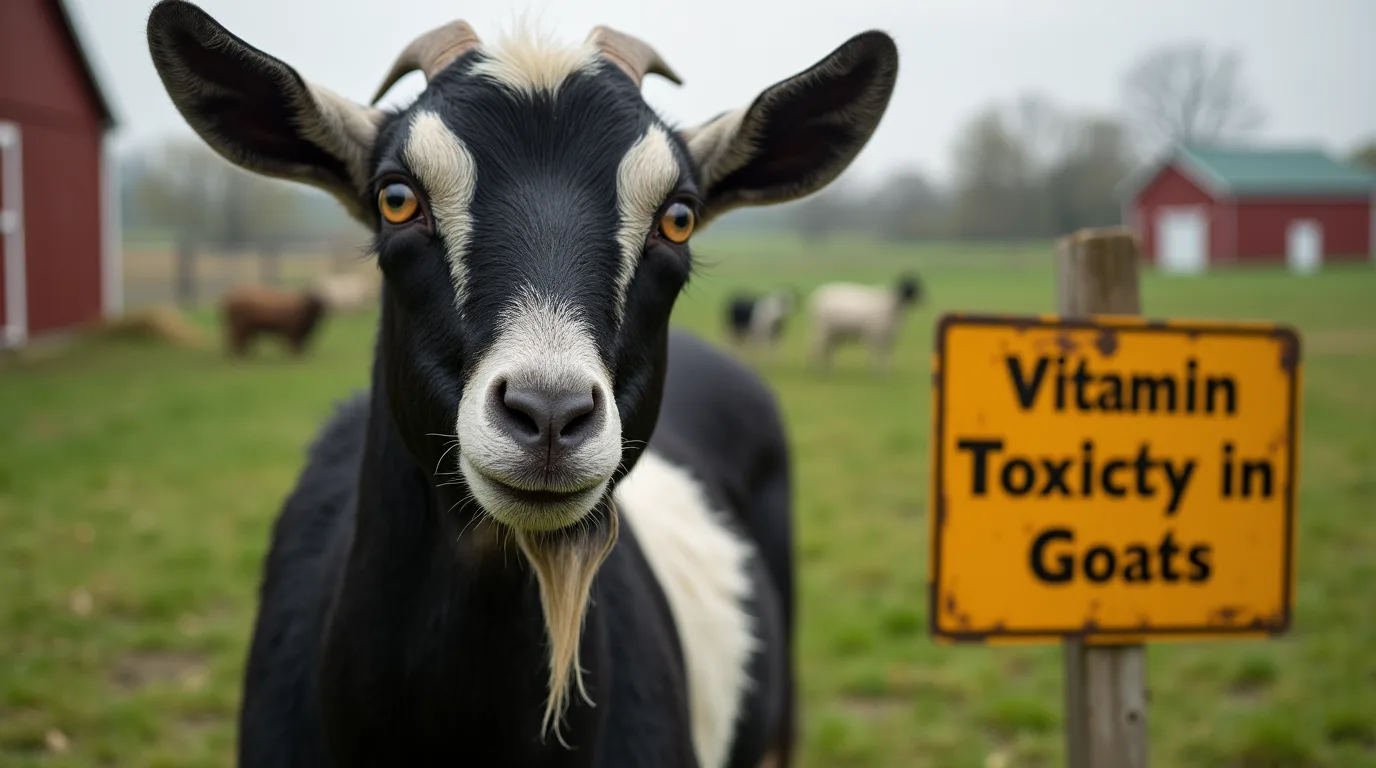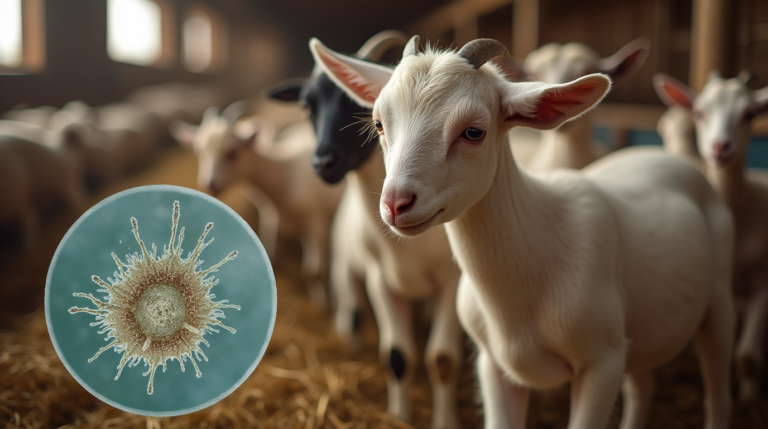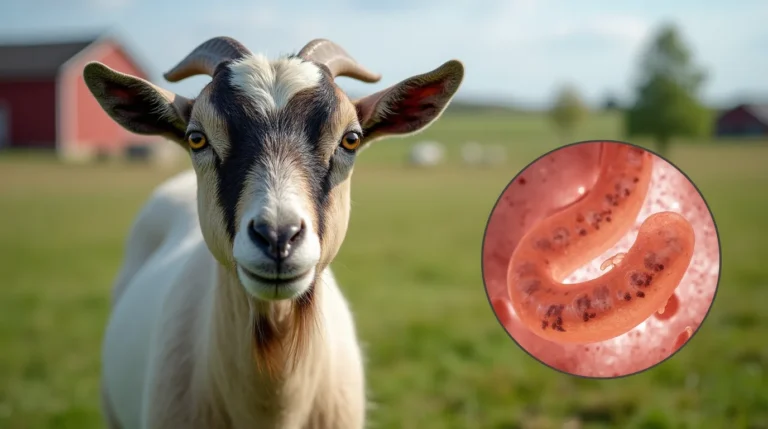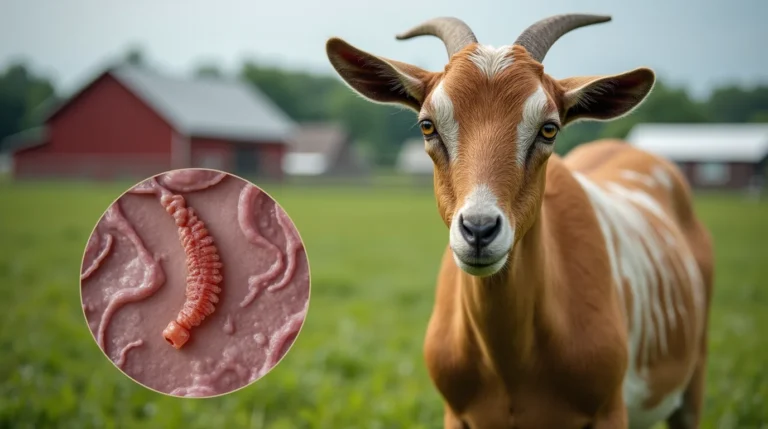Protect your goats from dangerous vitamin overdoses! Learn the critical symptoms of vitamin toxicity in Goats and essential prevention strategies for healthy livestock management.
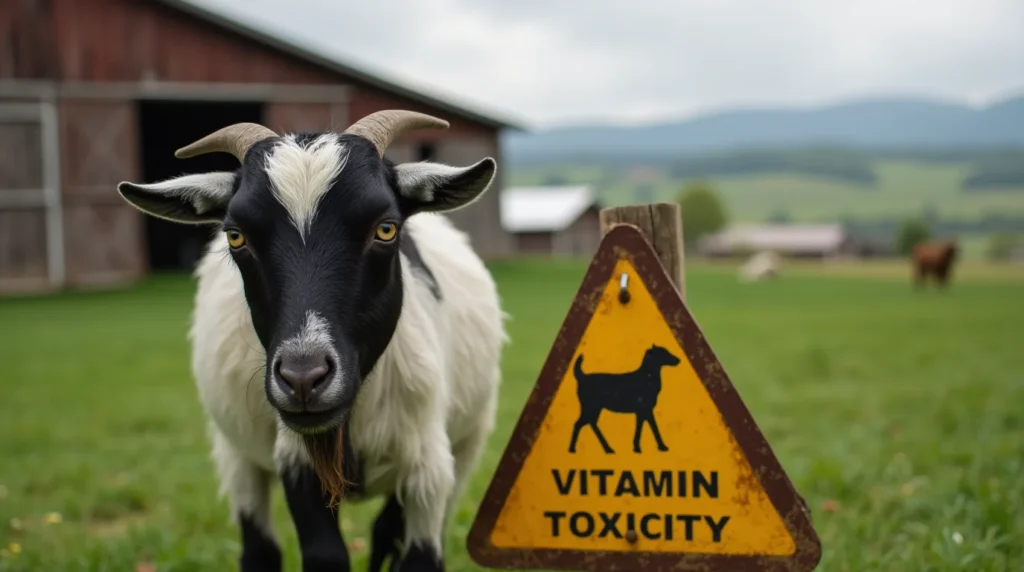
Table of Contents
Goat nutrition is a delicate balance, and while vitamins are essential for their health, too much of a good thing can be dangerous. Vitamin toxicity in goats is a serious concern that can lead to severe health complications and potentially fatal outcomes. As responsible goat owners and livestock managers, understanding the risks, symptoms, and prevention strategies is crucial for maintaining the well-being of your herd.
In this comprehensive guide, we’ll explore the intricate world of vitamin toxicity in goats, breaking down the most common causes, identifying critical symptoms, and providing expert-recommended prevention techniques. Whether you’re a seasoned goat farmer or a new livestock owner, this article will equip you with the knowledge to protect your goats from potentially life-threatening vitamin overdoses.
Understanding Vitamin Toxicity in Goats: The Basics
What is Vitamin Toxicity?
Vitamin toxicity occurs when goats consume excessive amounts of fat-soluble vitamins (A, D, E, and K) that accumulate in the body’s fat tissues and liver. Unlike water-soluble vitamins that are easily excreted, these vitamins can build up to toxic levels, causing significant health problems.
Key Factors Contributing to Vitamin Toxicity
- Overfortified Feed: Commercial feeds with high vitamin concentrations
- Excessive Supplementation: Indiscriminate use of vitamin supplements
- Mineral Block Overconsumption: Unregulated access to mineral blocks
- Improper Storage of Vitamin Supplements: Degraded or concentrated supplements
- Individual Goat Metabolism: Variations in vitamin absorption and storage
5 Critical Symptoms of Vitamin Toxicity in Goats
1. Neurological Disturbances
- Sudden behavioral changes
- Muscle tremors
- Lack of coordination
- Potential seizures
2. Digestive System Complications
- Persistent diarrhea
- Loss of appetite
- Significant weight loss
- Abdominal pain and bloating
3. Skin and Coat Abnormalities
- Hair loss
- Dry, flaky skin
- Unusual skin lesions
- Reduced coat quality
4. Reproductive and Hormonal Disruptions
- Reduced fertility
- Irregular estrous cycles
- Potential embryonic loss
- Decreased sperm quality in male goats
5. Metabolic and Organ Dysfunction
- Kidney stress
- Liver damage
- Compromised immune system
- Potential calcification of soft tissues
Preventing Vitamin Toxicity: A Comprehensive Approach
Regular Veterinary Consultation
- Annual health check-ups
- Periodic blood work and vitamin level testing
- Professional nutritional guidance
Strategic Supplementation
- Use species-specific vitamin formulations
- Follow precise dosage recommendations
- Rotate and diversify supplement sources
Nutrition Management
- Balance commercial feed with natural forage
- Monitor mineral block consumption
- Implement gradual dietary changes
Environmental and Storage Considerations
- Store supplements in cool, dry environments
- Use airtight containers
- Check expiration dates regularly
- Keep supplements out of goats’ direct reach
Diagnostic Techniques
Blood Serum Analysis
Veterinarians can conduct comprehensive blood tests to measure:
- Vitamin concentration levels
- Liver and kidney function
- Overall metabolic health
Clinical Examination
- Physical assessment
- Behavioral observation
- Detailed medical history review
Recommended Pet Products on Amazon
- Veterinary-Approved Vitamin Supplement Kit
- Precision Dosage Measuring Tools
- Goat Nutrition and Health Monitoring Journal
- Professional-Grade Vitamin Storage Container
Frequently Asked Questions (FAQ)
Q1: How quickly can vitamin toxicity develop in goats? Vitamin toxicity can develop gradually or suddenly, depending on the vitamin type and concentration. Fat-soluble vitamins like A and D can accumulate over weeks or months.
Q2: Are certain goat breeds more susceptible to vitamin toxicity? While all goats can experience vitamin toxicity, younger goats and those with compromised immune systems may be more vulnerable.
Q3: Can I reverse vitamin toxicity? Early detection is crucial. With professional veterinary intervention, some cases of vitamin toxicity can be managed effectively.
Call-to-Action
Concerned about your goats’ nutrition? Visit BlithePet.com for expert pet care guides and comprehensive livestock management resources!
Conclusion
Vitamin toxicity in goats is a complex but manageable condition. By understanding the symptoms, implementing strategic prevention techniques, and maintaining open communication with veterinary professionals, you can ensure your goats remain healthy and vibrant.
Share Your Experience: Have you encountered vitamin toxicity challenges with your goats? Leave a comment below and help fellow goat owners learn from your insights!
Disclaimer: This article is for informational purposes and should not replace professional veterinary advice.

